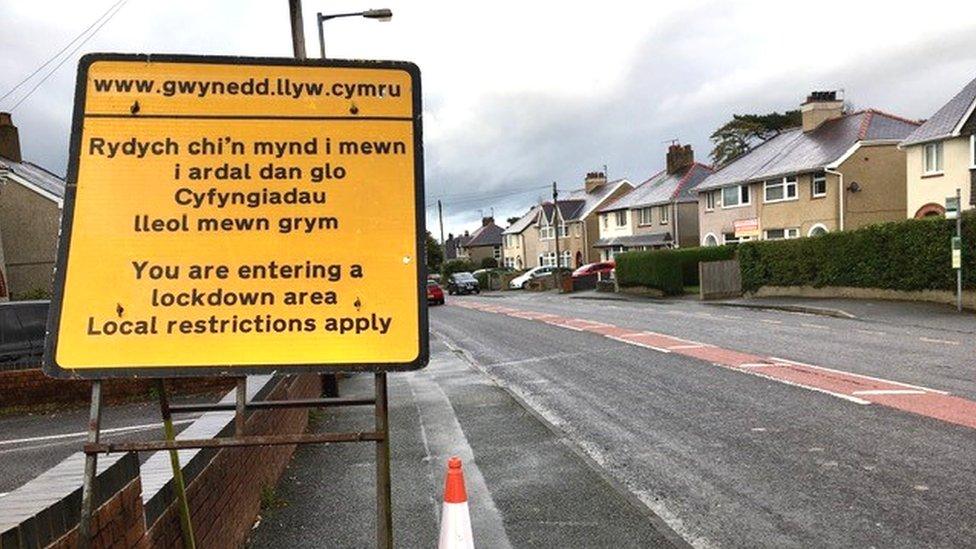Covid-19: Why do people break lockdown rules?
- Published

People have been shaking hands to show friendship and trust since the days of Ancient Greece and Medieval Europe.
But does the fact centuries-old habits like this have had to change during the coronavirus pandemic give us an insight into why social distancing and lockdown rules are sometimes broken?
Public attitudes expert Dr Simon Williams believes so - and he thinks the effects of lifestyle changes since the outbreak could be felt by people for up to three years after the pandemic.
For psychologist Prof Fay Short, there are three kinds of rule-breakers - people who don't understand the Covid-19 rules, people who don't think they are important, and those who are trying to exert control.
As Wales begins a two-week "firebreak" lockdown, BBC Wales took a look at what lies behind people's inability to stick to some of the pandemic guidance so far.
"One of the concerns that people voiced during the first lockdown was that they would find it hard to go in and out of lockdown," said Dr Williams of Swansea University.
"This is now the reality."
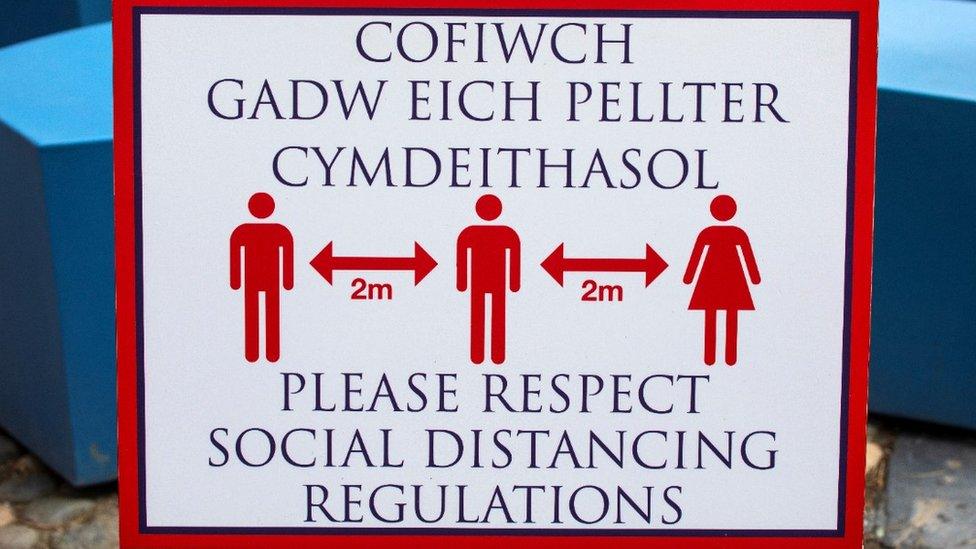
Signs at beauty spots around Wales have urged people to socially distance
While adherence to rules during the first lockdown was "extremely high", he said, there were now "a growing number of divisions in society", following a number of local lockdowns and the launch of the second national lockdown on Friday evening.
"This creates a space where people can rationalise behaviour that perhaps best suits their own views," he added.
Dr Williams believed extroverts who had "more extensive in-personal social networks" were being harder hit and students or young adults who felt their futures had been "set back" could feel a sense of "rebelliousness".

Hen parties should be a thing of the past during current times, Health Minister Vaughan Gething said
He said others will find it hard to follow rules without experiencing mental health problems.
"Arguably, those in insecure jobs and those who can't work from home and who, despite the existence of a support bubble, might be more socially isolated as a result of lockdown, all experience additional challenges and barriers during lockdown."
Looking at the aftermath of other outbreaks such as SARS, he warned the effects for some on mental health could be felt for up to three years.
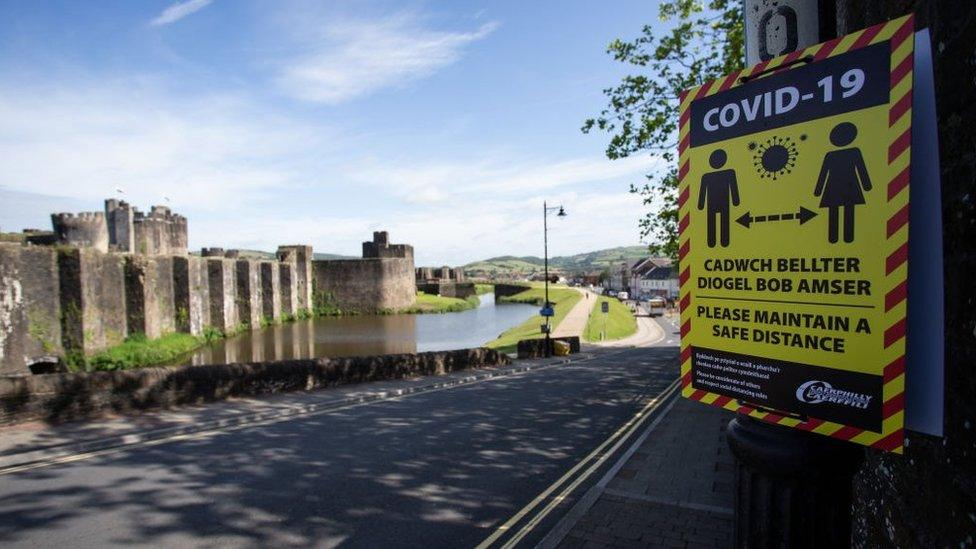
Caerphilly was the first local authority in Wales to have tighter restrictions imposed in September
Bangor University psychologist Prof Fay Short outlined different types of rules breakers.
The first are those who do not know what the rules are - partly because guidance has changed over time and in different areas.
"Then there are those that don't think rules are important. If you don't have personal experience of something, you minimise its importance," she said.
"If none of your family members have had it, you're not in touch with it, it seems distant and something that happens to somebody else.
"You may then forget your mask in a shop, invite the family over, not thinking about the risks."
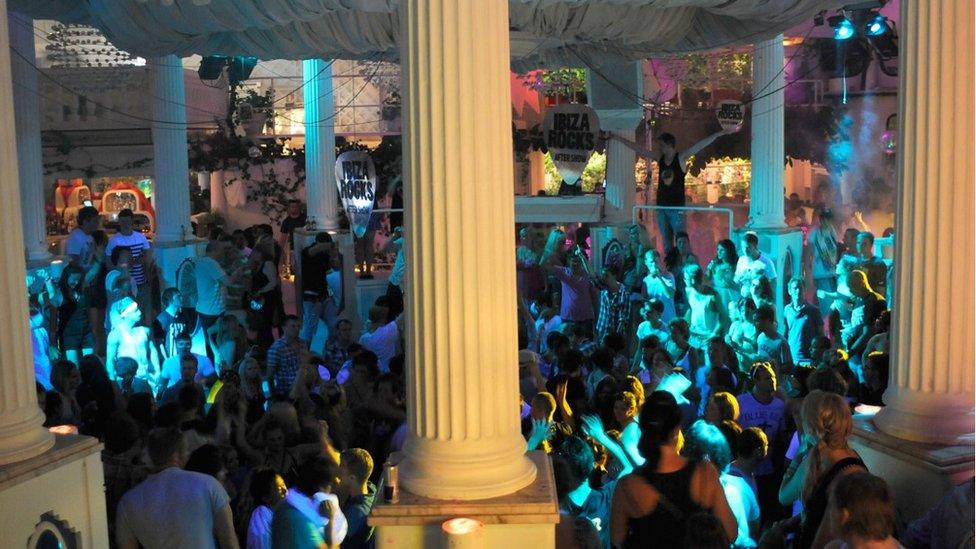
Not adhering to social distancing rules after an Ibiza trip was blamed for some Caerphilly cases
The third group are those trying to exert control in a "scary world", but she adds: "Ironically, they are putting themselves at more risk."
All three cause anxiety, which can lead to people avoiding the news, "burying their heads in the sand" or convincing themselves the risks are not that big.
"They may feel safer if they don't think of it as a scary disease," Prof Short added.
"Anxiety is caused over the future of the world, the economy, their finances. They may be looking for someone to fight against, and focus on the government.
"A disease is faceless, it's hard to fight against."
And there have been some high-profile brushes with the guidance.
Caerphilly: Partying in Ibiza and the house
Ian Cottrell said he was "shocked" at the lack of social distancing
A failure to socially distance following a group trip to the party island of Ibiza accounted for 13 new cases of coronavirus in Caerphilly county at the start of September.
Health Minister Vaughan Gething described how one of the group gave it to their partner and father, another had a house party the day after coming home where four others caught it, while it also spread through car-sharing.
He also warned against travelling to Cardiff for a night out, with footage emerging of people failing to socially distance outside Coyote Ugly on St Mary Street.
Mr Gething also said pub crawls and stag and hen nights should be a "thing of the past" for the time being.
Rhondda Cynon Taf: A trip to the races
Donna Clifton's partner went on the trip and returned with Covid-19
Failing to social distance at a rugby club and a bus trip to Doncaster Races were blamed for a spike in Rhondda Cynon Taf.
The group did not go to the event, but stopped off at pubs on the way to Doncaster.
"This wasn't a group of young people - it's entirely possible for people in their 40s and 50s to behave irresponsibly, and we've seen a significant spread from that event," Mr Gething said.
Llanelli: 'Making rules up'
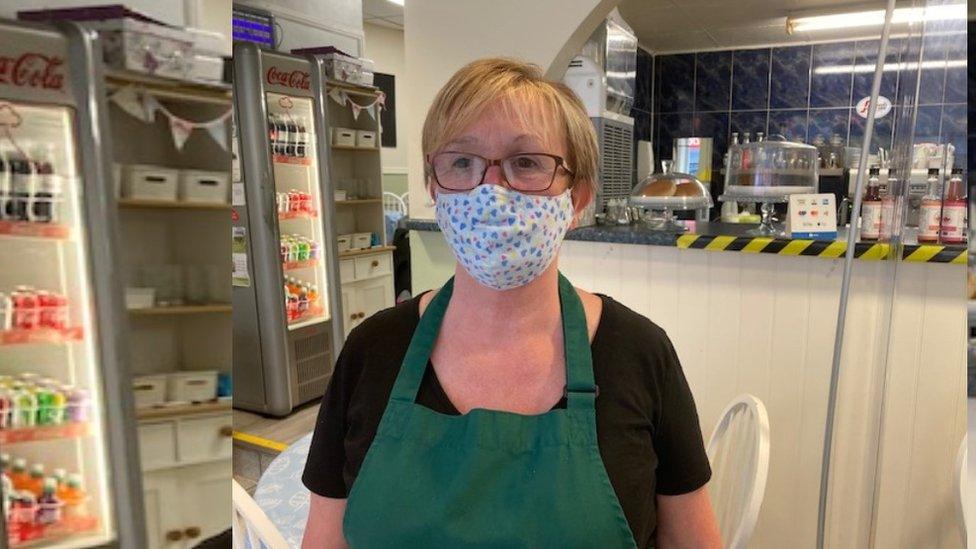
Cafe owner Diane Cheshire said people were confused about the rules
Llanelli was the first town to be locked down locally, with 85 cases compared with 24 across the rest of the county of Carmarthenshire.
Part of the blame was attributed to pubs and bars for not enforcing social distancing.
Diane Cheshire, who runs Joly's Cafe, said people were "not sure what is the right thing to do" and said some shoppers were making rules up.
Bangor: Students return to university
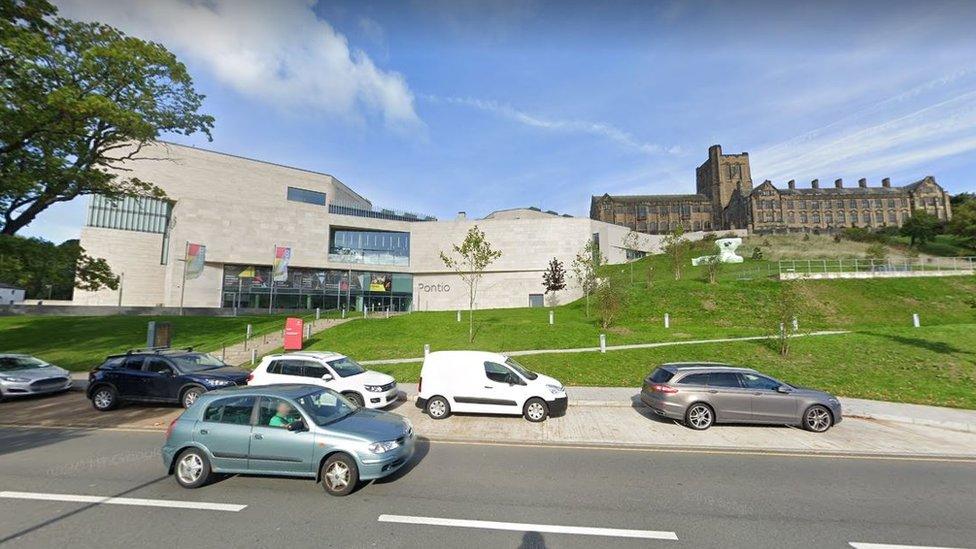
Bangor's cases appeared to be associated with young people and its student population, officials said at the time
About 16,000 people from eight wards were told to stay in Bangor earlier this month, with the Welsh Government saying cases were "closely associated with young people and the student population".
Tattoo shop owner Jules Lee said it was "very difficult to get people to follow the rules".
"We've got massive signs saying one person at a time, and the amount of times that we'll have to tell them 'I'm sorry' [because] they come three or four people at the same time," she said.
Can you be punished for not social distancing?
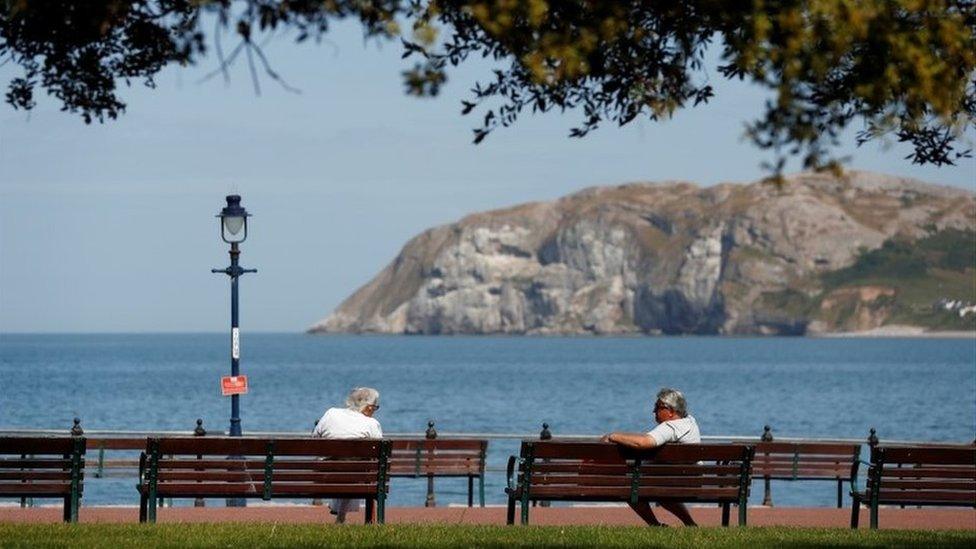
Social distancing in Llandudno, Conwy
In May, a maximum fine of £1,920, external for breaking rules in Wales was announced while organisers of an illegal rave were ordered to pay £10,000.
Records released by Carmarthenshire Magistrates' Court, sitting in Llanelli, revealed the fines handed out by Dyfed-Powys Police.
The highest was given to a 27-year-old man from Wirral, Merseyside, who was ordered to pay £811, after attending a party in Newtown, Powys in May, and then a friend's house.
Another similar fine was given to a man, 18, from Llanelli, who twice refused police requests to go home when sat with a group on the coastal path and in the town in April.
- Published8 September 2020
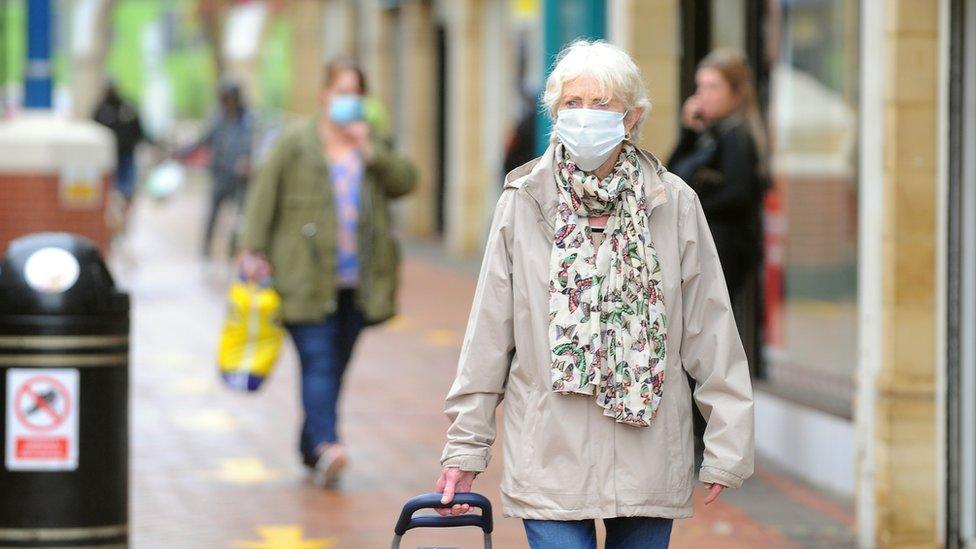
- Published5 September 2020
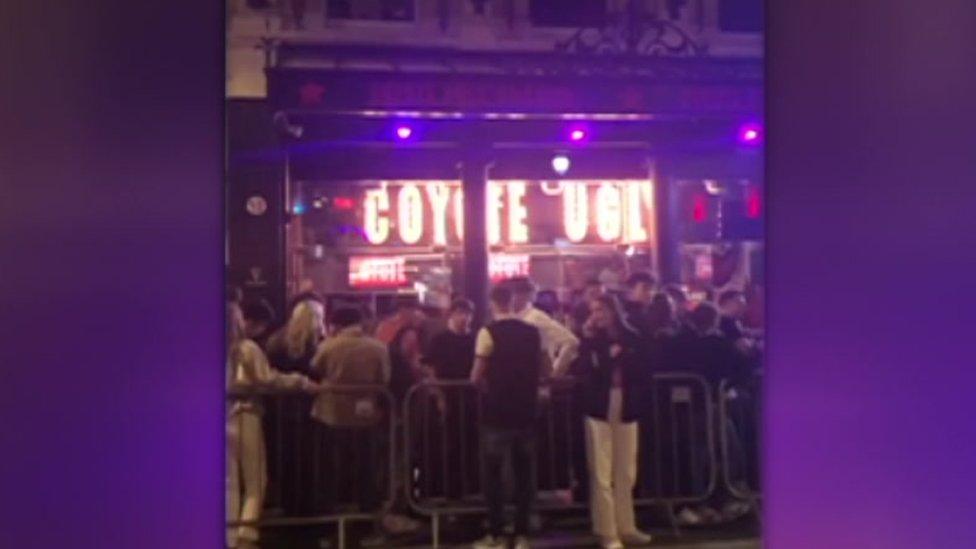
- Published22 September 2020
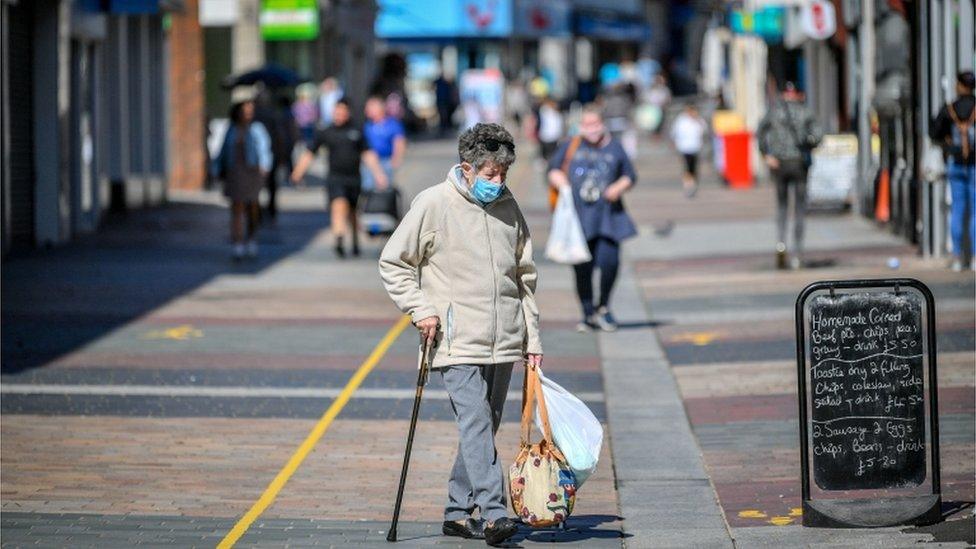
- Published25 August 2020

- Published16 September 2020
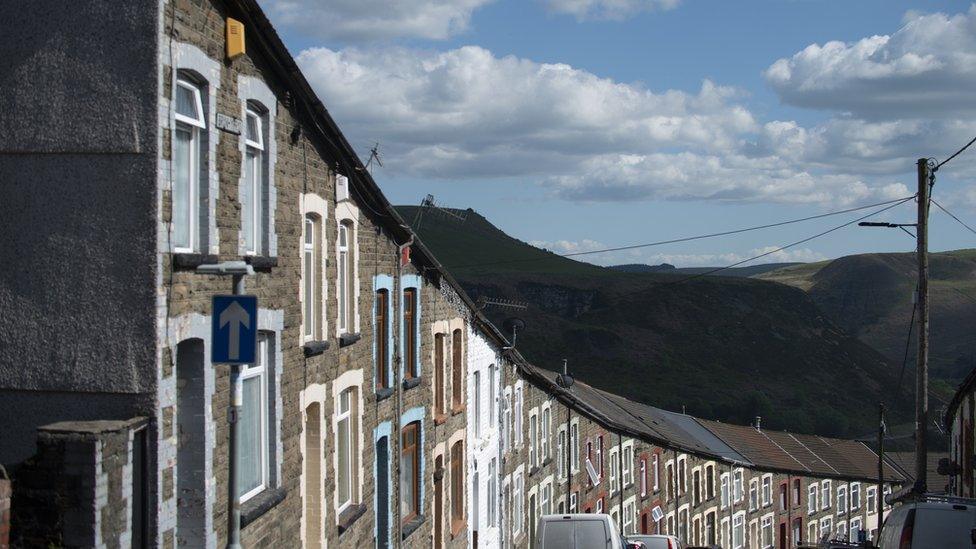
- Published14 October 2020
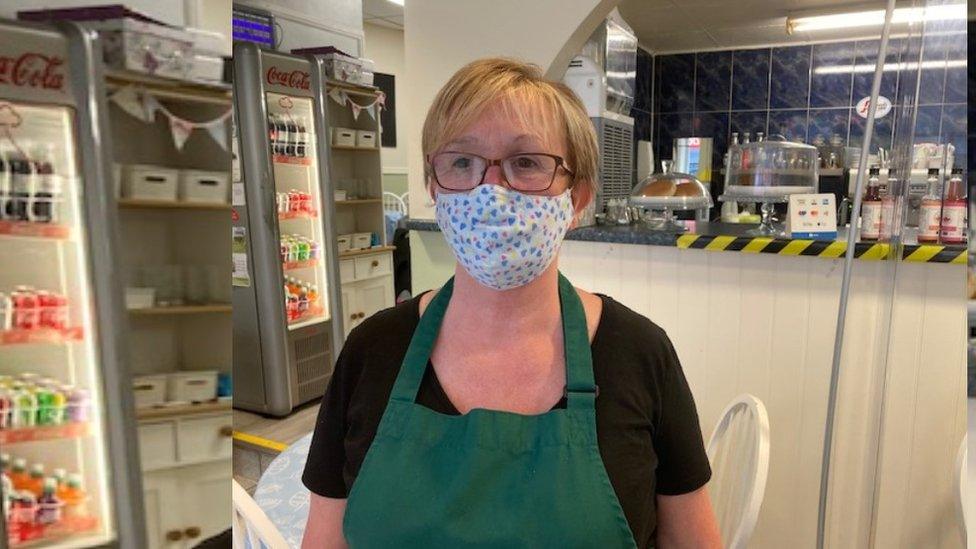
- Published10 October 2020
